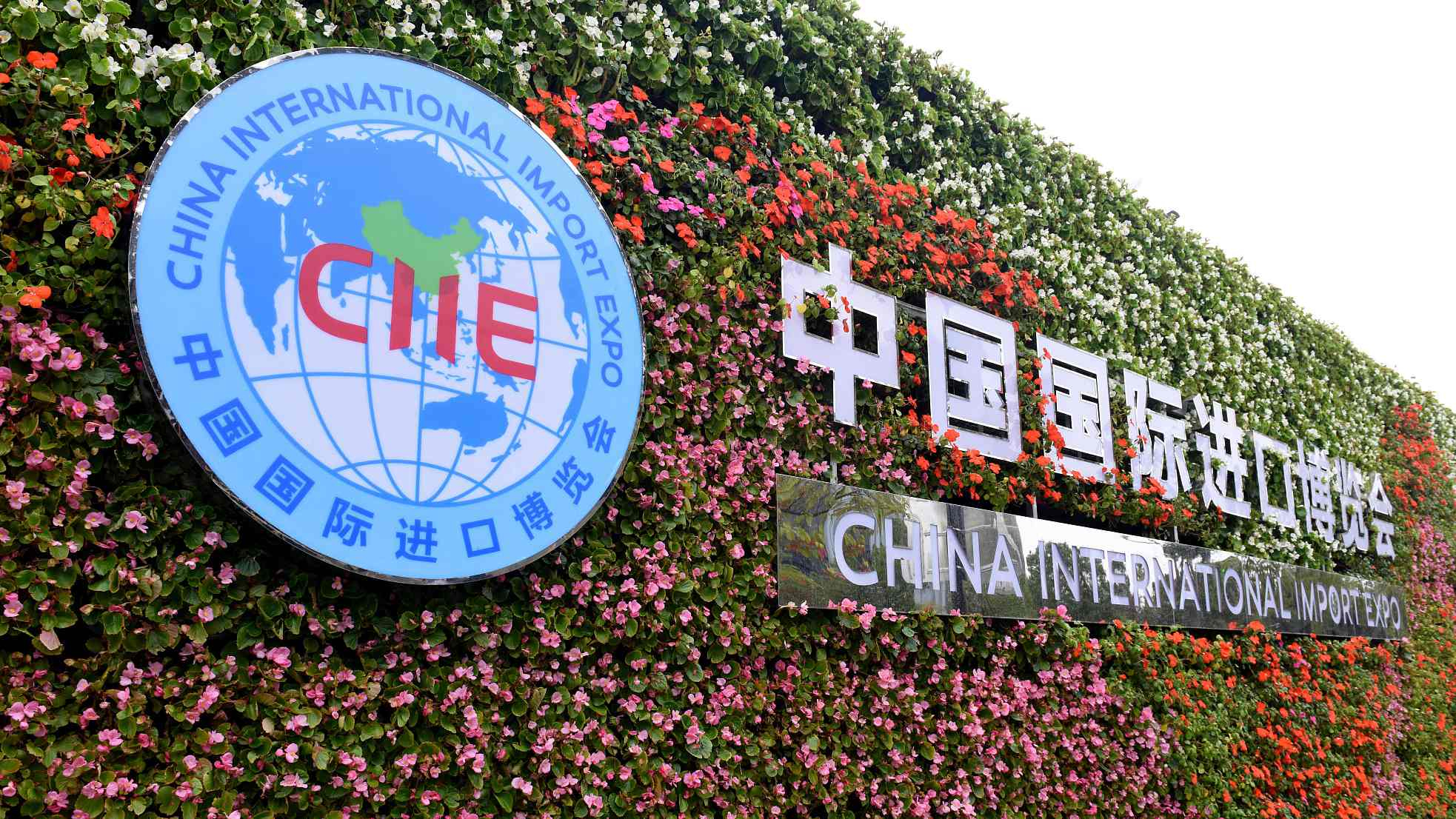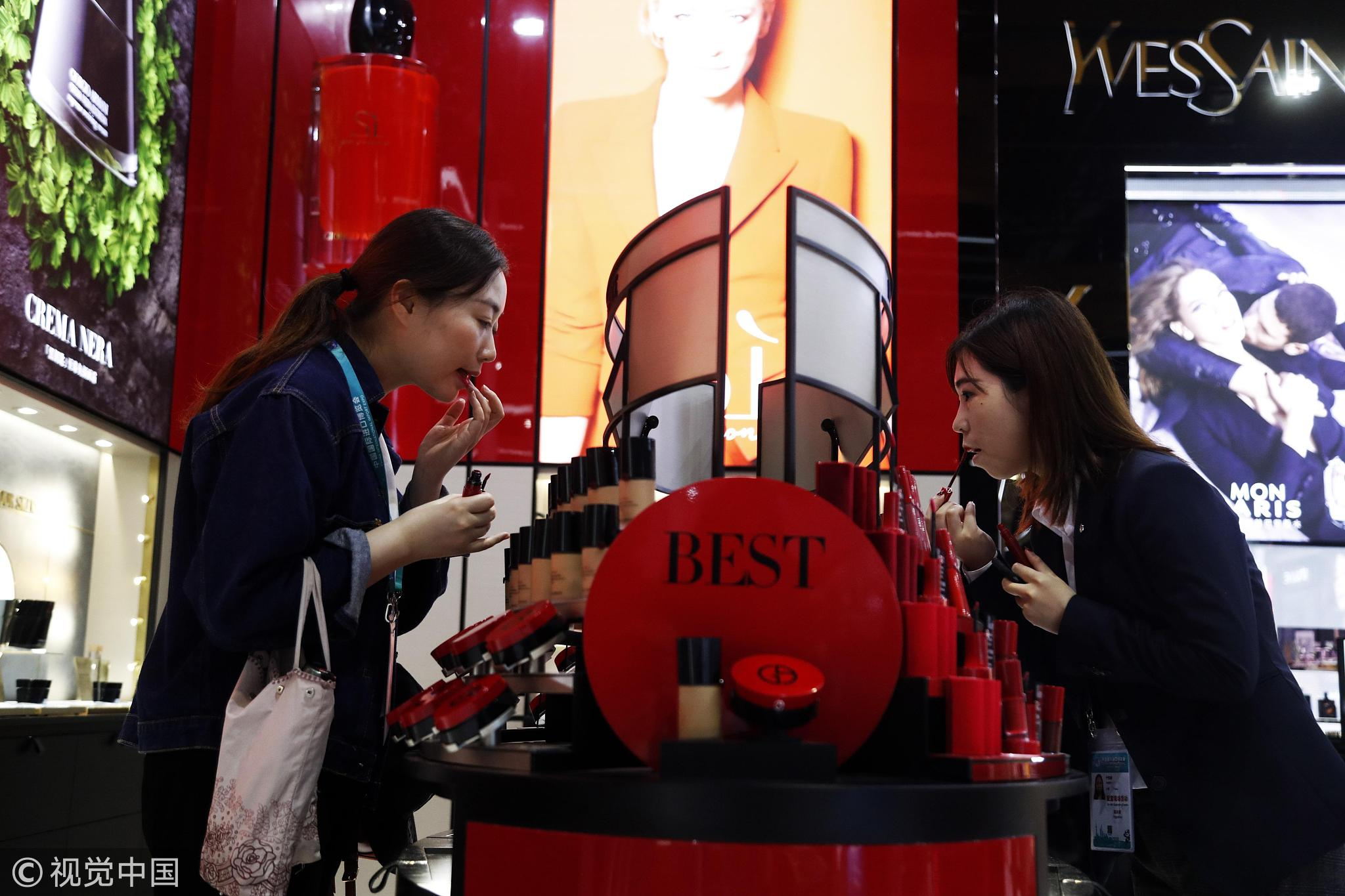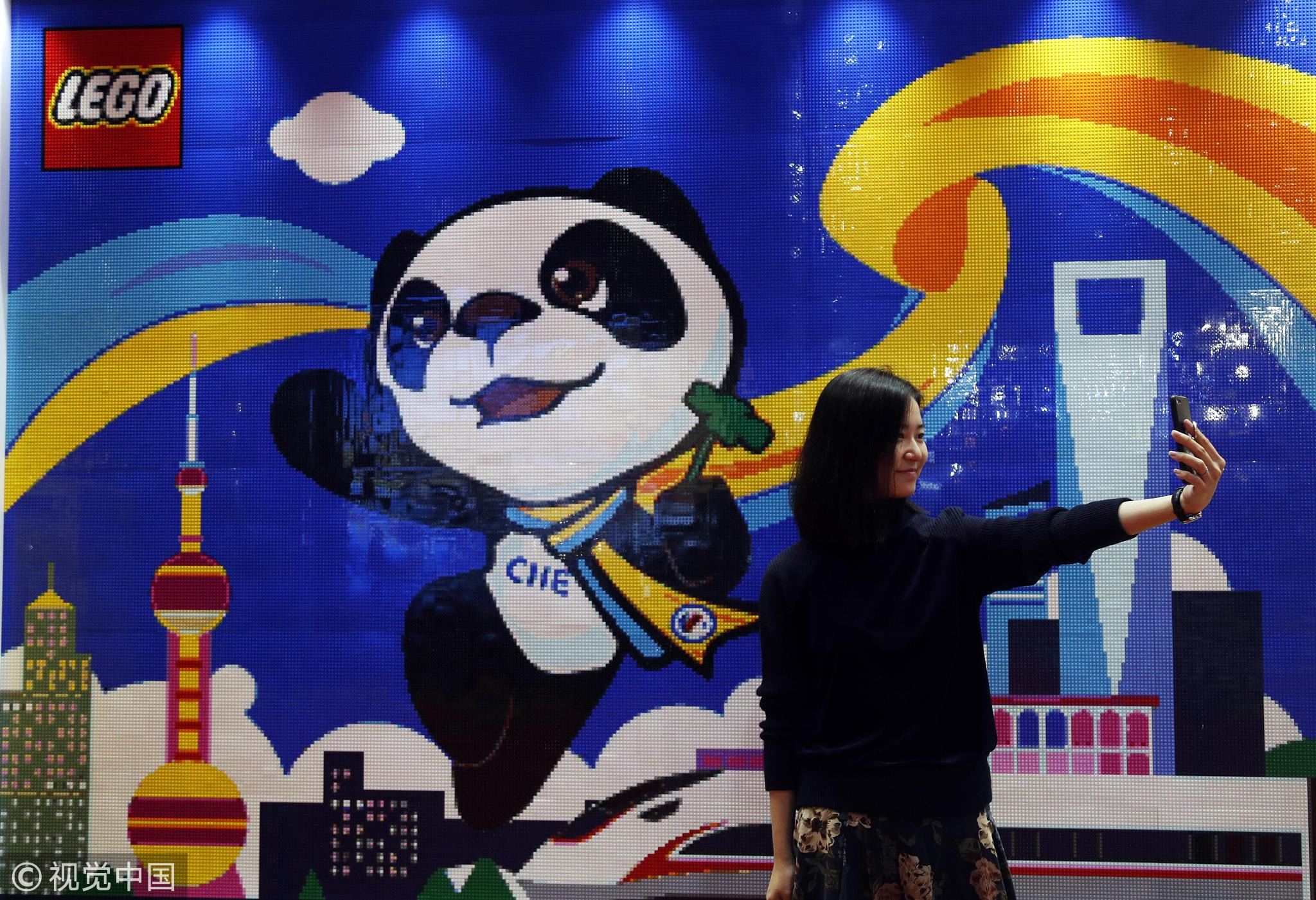
Opinions
18:46, 07-Nov-2018
Western media must abandon CIIE stereotypes for multi-win results
Updated
18:03, 10-Nov-2018
CGTN's Liu Jianxi

Editor's note: Liu Jianxi is an opinion editor with CGTN Digital. The article reflects the author's opinions, and not necessarily the views of CGTN.
After a year of preparation, the China International Import Expo (CIIE), the world's first import-themed national-level trade fair, kicked off in Shanghai this week. More than 3,600 firms from over 130 countries and regions were present at this trail-blazing event, according to media reports.
"The CIIE demonstrates China's consistent position of supporting the multilateral trading system and promoting free trade. It is a concrete action by China to advance an open world economy and support economic globalization," Chinese President Xi Jinping said in his keynote speech at Monday's opening ceremony.
The expo is undeniably a great opportunity for foreign exhibitors to explore and enter the Chinese market. "We believe that we can expand our market horizons in China. We are talking about 1.3 billion people, and even if we can get one percent of that market, it is very huge. So everybody is looking to China," Joseph Boahen Aidoo, chief executive of Ghana's Cocoa Board, was quoted by Xinhua as saying.
However, some Western media outlets with ulterior motives were obstinate in their "China threat" platitude and spared no effort in finding fault with this mutually beneficial event. The New York Times, a pioneer in tainting China's image, was never stingy in ink when analyzing China's "political calculations" behind the CIIE.

Visitors try cosmetics at the CIIE in Shanghai, November 7, 2018. /VCG Photo
Visitors try cosmetics at the CIIE in Shanghai, November 7, 2018. /VCG Photo
The warmly welcomed expo was maliciously portrayed as China's attempt to "seek allies." "Even while seeking a trade deal with Washington, Beijing has increasingly tried to appeal to the rest of the world, both for political support in the clash with the United States and to make sure China has more places to sell its products," The New York Times (NYT) speculated.
The world-renowned newspaper is straining every nerve to pour dirty water on China. It simply ignored the basic fact that the CIIE was first announced at the Belt and Road Forum for International Cooperation in May last year when the world's largest two economies had not been locked in the trade battle.
The NYT continued to indicate that major powers acted nonchalantly to the CIIE. "Notably absent were the leaders of major trading nations like Germany, Britain, South Korea and Japan. The United States did not send an official delegation at all," the article said.
In sharp contrast to Western media's speculations, the expo proves to be a sought-after event for foreign firms, especially those from the West. Japan ranks first in the number of participating firms, followed by a slew of Western countries – the US, Australia, Germany and Italy, according to media reports.

A visitor is taking a selfie at the CIIE in Shanghai, November 7. /VCG Photo
A visitor is taking a selfie at the CIIE in Shanghai, November 7. /VCG Photo
NYT-represented western media, and so-called strategists, are always ready to interpret China's goodhearted acts from a malicious perspective, in disregard of the interests of their people. These Westerners still prioritize ideology over economic needs. Their stereotypes against China are only shooting themselves in the foot, especially in the era of globalization.
The world's second-largest economy is playing an indispensable part in the global industrial chain with its exports ranging from medicine to auto parts. Moreover, given its expanding customer market, China has become increasingly a sought-after destination for exports from other countries.
In his Monday speech, President Xi pledged to open the country's market wider. This means the West cannot afford to ruin ties with China.
Instead of a "massive trade show" as alleged by some western media outlets, the CIIE is a sincere endeavor by China to further open its economy. By holding such a national-scale event, China is striving to broaden its market access, foster a world-class commercial environment and promote international cooperation at multilateral and bilateral levels.
CIIE exhibitors embrace the Chinese government's sincerity. "It's [CIIE] not about bargaining, but mutually beneficial exchanges," Samuel du Retail, general manager of the consumer products division of L'Oreal China, said in an interview with Xinhua.
The Chinese government has reiterated that the trade war benefits none. It's hoped that certain westerners can abandon stereotypes against China for multi-win results. The CIIE marks a milestone in the history of global trade development, and China welcomes all parties concerned to participate in this process.
(If you want to contribute and have specific expertise, contact us at opinions@cgtn.com.)

SITEMAP
Copyright © 2018 CGTN. Beijing ICP prepared NO.16065310-3
Copyright © 2018 CGTN. Beijing ICP prepared NO.16065310-3